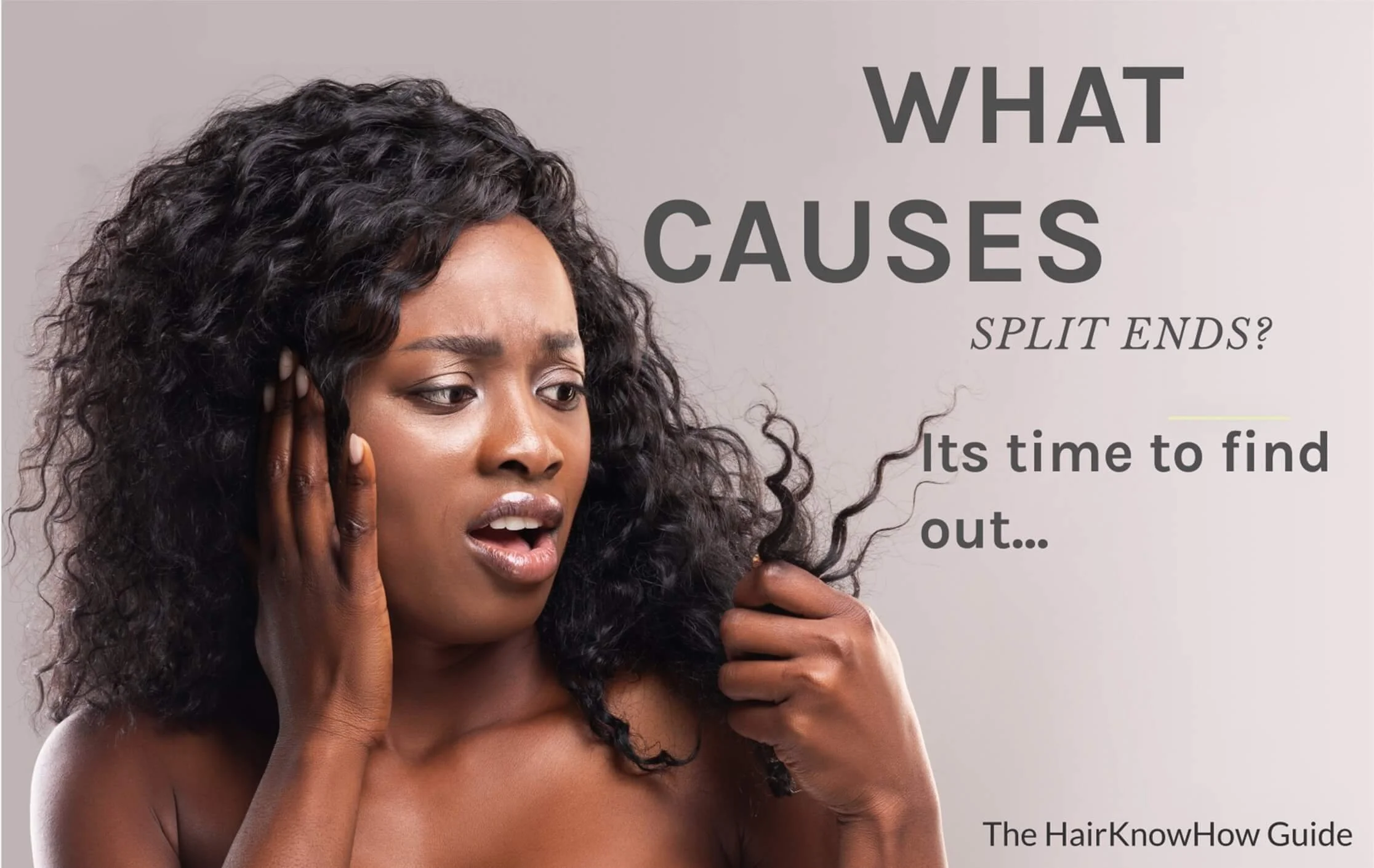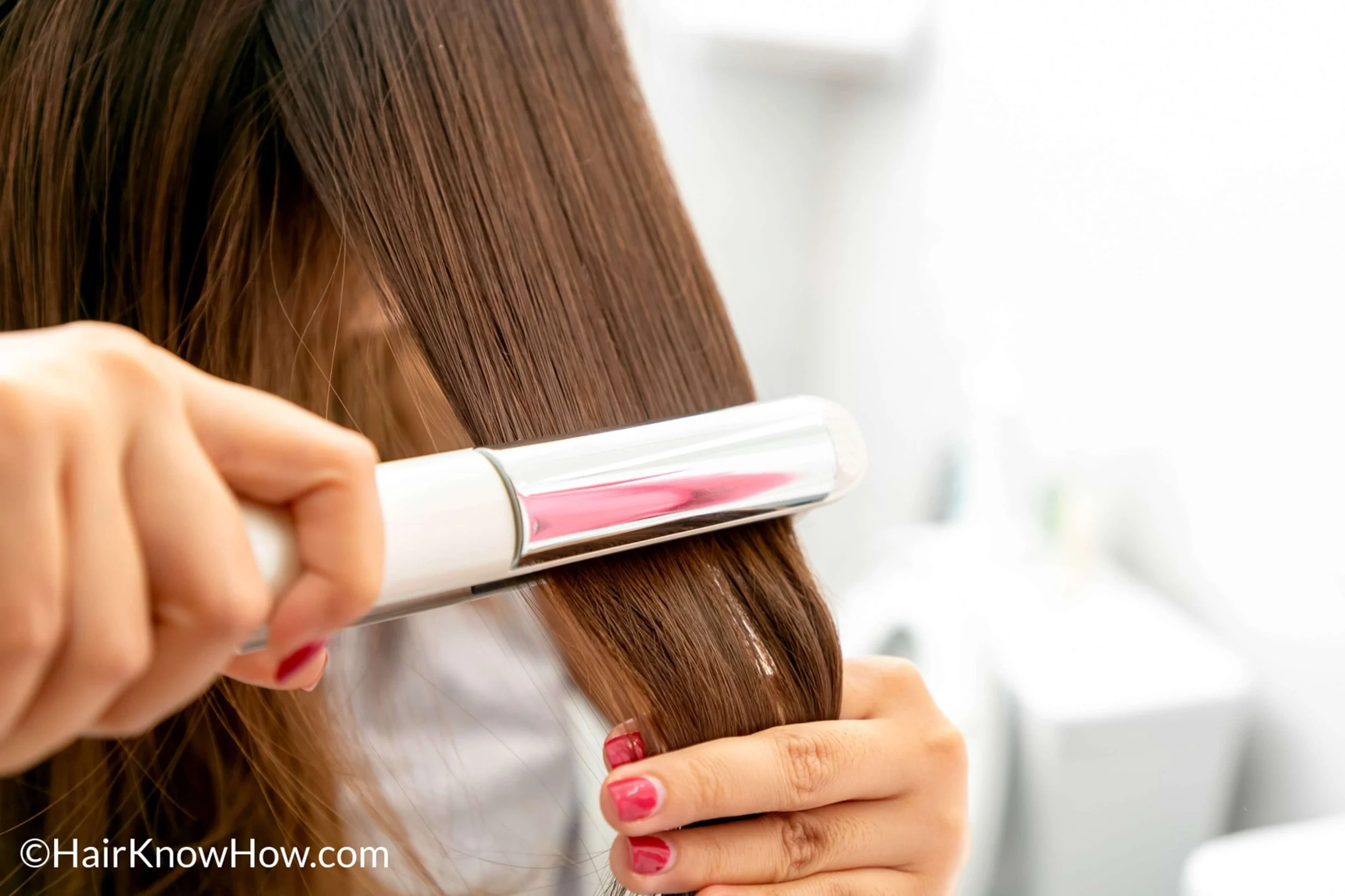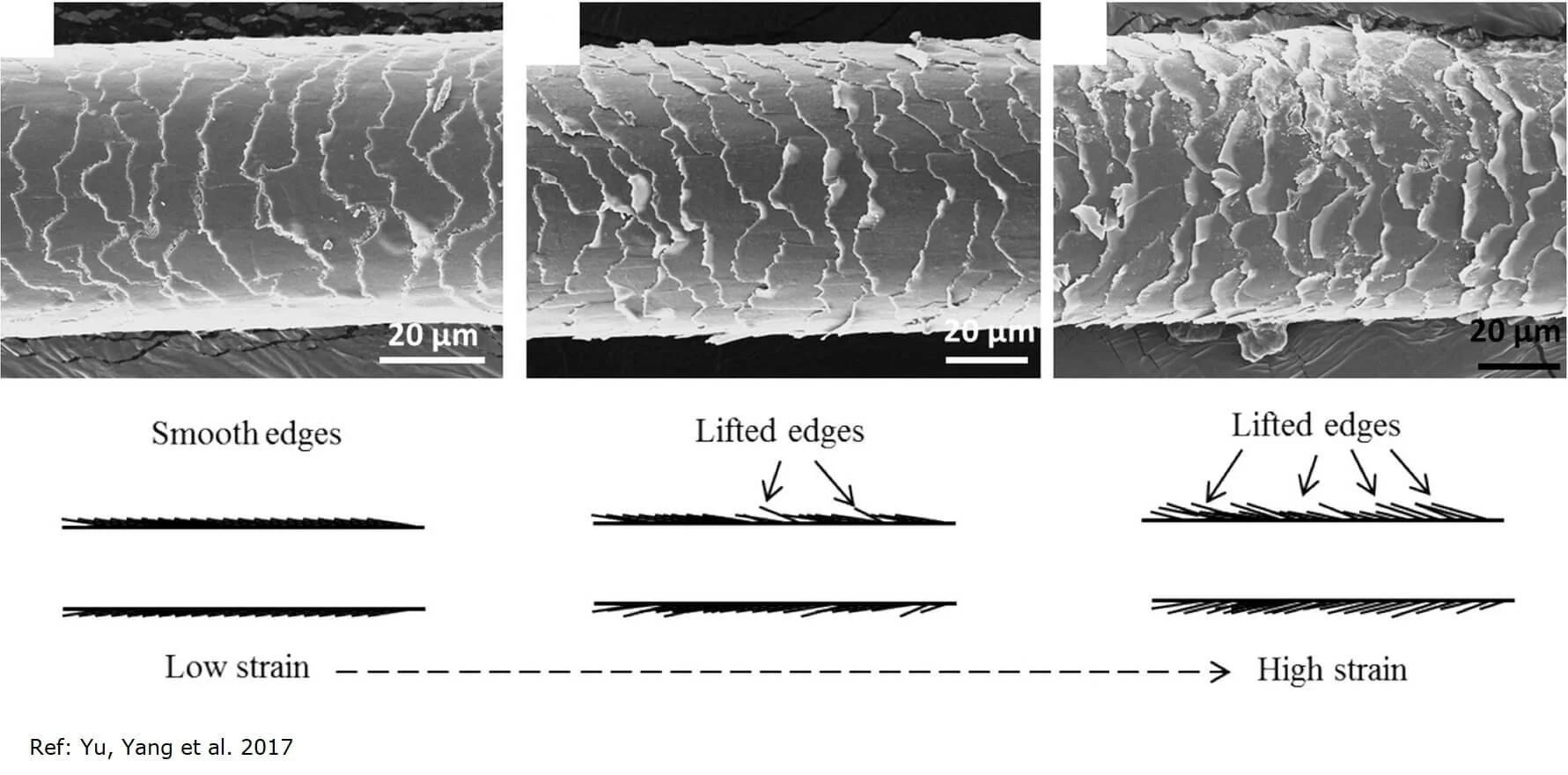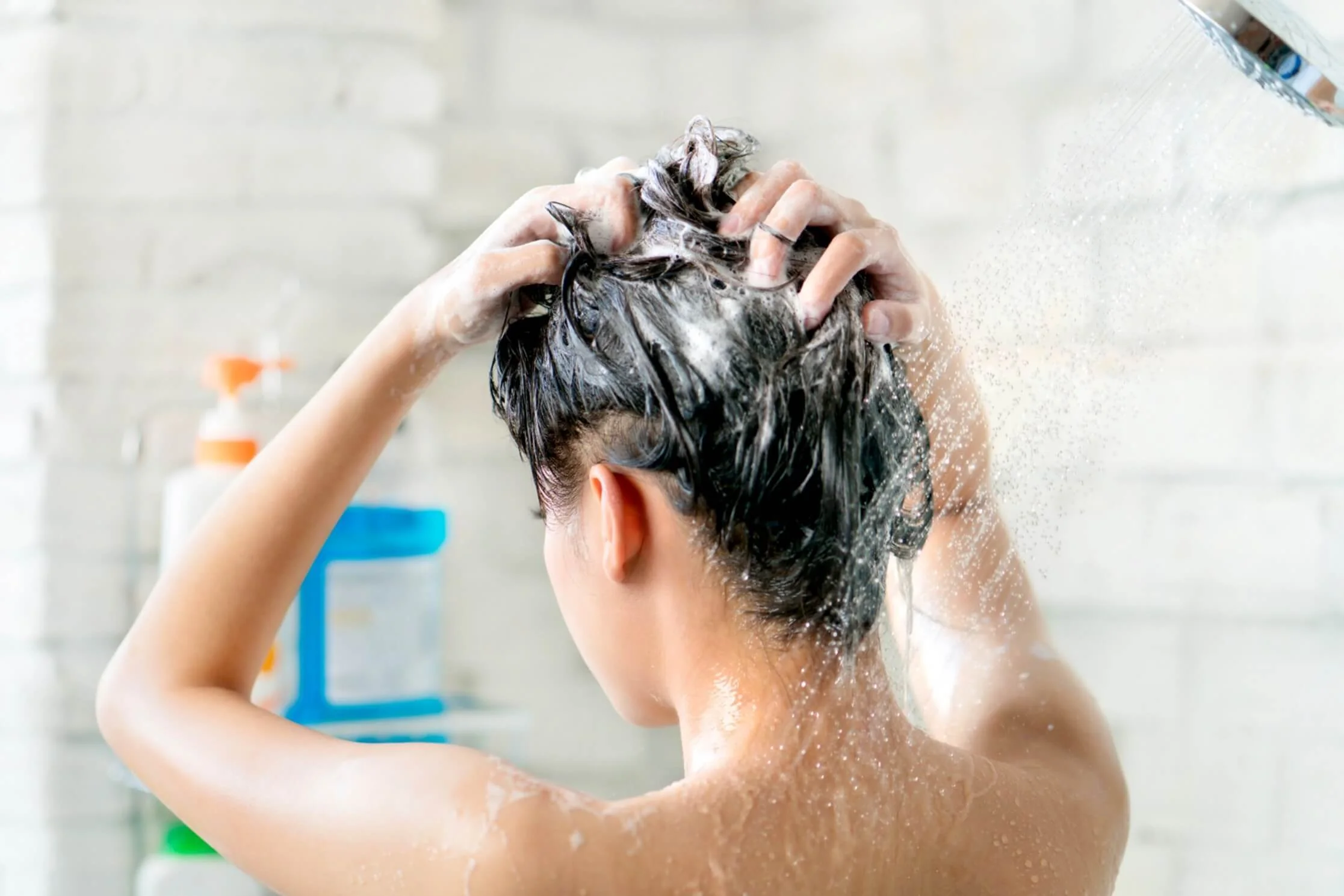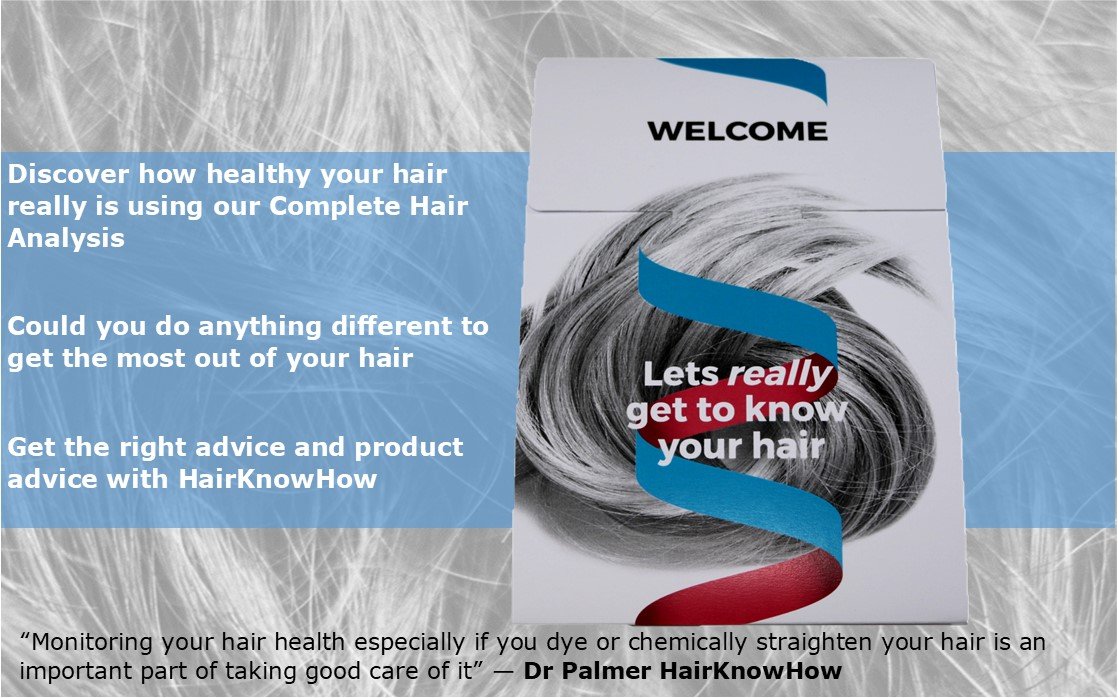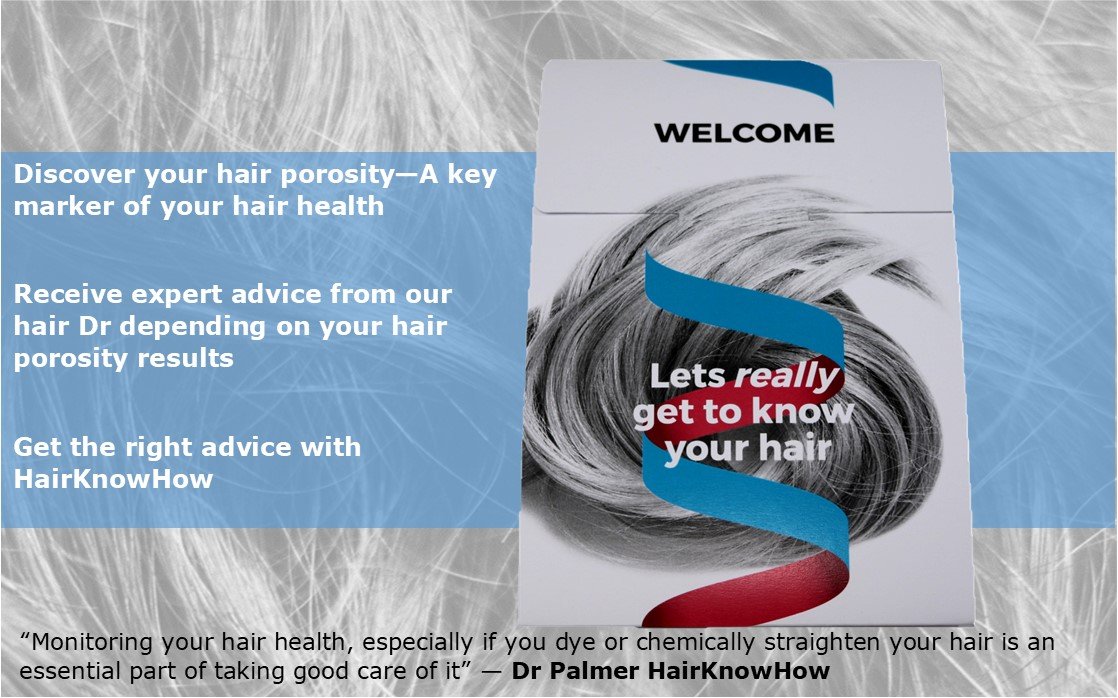Why do you get split ends?
Split ends are caused by the structural weakening of your hair fibres resulting in partial splintering, fracturing or fraying of the fibre at the end.
The medical term for split ends is “trichoptilosis” or “schizotrichia”.
Typically, this weakening occurs in hair fibres with high porosity - meaning the fibre has an abundance of microscopic holes and cracks that run through the centre of your hairs within the cortex.
What is probably giving you more split ends?
Important factors that enhance split ends or vary the frequency at which they are found within your hair depend on many factors. The most important factors are discussed below:
Frequency of hair colouring treatments and strength of the peroxide used.
Amount and length of heating treatments.
How much brushing and pulling your hair has experienced.
The quality of the conditioner you are using.
All these types of damage are irreversible and best avoided or minimised if possible.
Chemical colouring and split ends
Chemical hair colouring using peroxides is well known for causing massive amounts of damage to both your hair's cortex and cuticle. Peroxide treatments result in a large amount of your hair being broken down chemically and washed away, significantly weakening the hair that remains.
Heating irons and split ends
Rapidly heating your hair to temperatures greater than 230 degrees Celsius (when using heating tongs etc.), boil any water and oils present within your hair. This heating causes voids to open up within your hair's cortex and blister on your cuticle.
As an Amazon Associate, I earn from qualifying purchases - Click here to read our Affiliate Disclaimer
Straightening your hair with heating tongs doesn't need to be massively destructive to your hair, causing the sort of blisters shown above. The solution is a temperature-controlled curler or straightener! Experiment with the temperature and the length of hair contact time to discover the lowest heat settings you need to get the look you want. Get the look without the damage!
Pulling your hair too hard and excessive brushing and split ends
Pulling on your hair too hard and excessive brushing causes damage to individual cuticle cells and the cuticle layer as a whole. Tugging excessively hard will also strain your hair, permanently stretching beyond its elastic point (young modulus), weakening it and disrupting or displacing your hair's cuticle layer.
Over time this can build up and result in the complete loss of the cuticle layer, ultimately increasing split ends and frizz.
Again take care when brushing, and we recommend avoiding brushing your hair when wet.
As an Amazon Associate, I earn from qualifying purchases - Click here to read our Affiliate Disclaimer
Two great detangling brushes for those with frizzy tangly, or knotted hair. The type, number and arrangement of bristles help reduce the stress placed on hair during brushing and untangling. We have a lot of experience with these brushes. They will serve you well whether you use them for detangling or as part of your everyday styling regime, and we highly recommend them to you. Suitable for all hair types. Let us know how you get on.
Using the wrong conditioner can add to your risk of getting split ends
Using a good conditioner from a reputable supplier should be formulated to help make your hair more manageable and contain suitable hair oils such as coconut and argan oil to help hydrate your hair.
More manageable hair is easier to style and brush, reducing hair breakage and damage caused by excessive pulling and preventing other damage, e.g. hygral fatigue - water damage.
As an Amazon Associate, I earn from qualifying purchases - Click here to read our Affiliate Disclaimer
Two great conditioners we regularly use ourselves will help reduce split-end formation and increase hair health. Head & Shoulders spent decades honing their formulations and make excellent conditioners. They’ve got the right combination of oils and other ingredients that boost hair health, leaving it feeling soft and more manageable. They also, in our opinion, make your hair smell great. Definitely worth a try.
Dispelling a myth: Does rubbing your hair towards your scalp cause split ends? The answer is a quick “no”.
Get Expert Hair Analysis and Help
If you are worried about split ends, the health of your hair, or you want advice on the best hair care solutions for your hair, please get in touch with HairKnowHow and give a HairKnowHow Hair Analysis a try!
Contact the HairKnowHow Team if you have any questions.

